Abstract
OBJECTIVE--To determine whether a booklet given to patients being discharged from hospital giving details of their admission and treatment increased their knowledge and recall when reviewed in outpatient clinics. DESIGN--Patients alternately allocated to receive a booklet or to serve as controls. Assessment by a questionnaire at first attendance at outpatient clinic after discharge. Data were collected over nine months. SETTING--One general medical and cardiological ward in a large teaching hospital and associated outpatient clinics. PATIENTS--One hundred and thirty one patients discharged taking at least one drug and scheduled to return to clinic within 12 weeks. Patients stratified by age and by the number of weeks between discharge and outpatient appointment. INTERVENTION--A booklet was given to 65 patients at discharge from the ward; 66 patients served as controls. MAIN RESULTS--Of the patients who received the booklet, 56 (86%) knew the names of their drugs, 62 (95%) the frequency of the dose, and 55 (85%) the reasons for taking each drug. The numbers in the control group were 31 (47%), 38 (58%), and 28 (42%) respectively. These differences were highly significant (p less than 0.001). Twenty six (40%) who received the booklet brought all their drugs to clinic compared with 12 (18%) control patients. Appreciably more of the first group of patients than control patients knew the reason they had been in hospital, and more of the first group indicated that they would take the correct action when their prescribed drugs ran out. Most general practitioners thought that the booklet was a good idea, that it was helpful, and that it was better than the existing interim discharge letter. CONCLUSIONS--Giving patients an information booklet at discharge from hospital appreciably increased the accuracy and thoroughness of their recall of important medical details concerning their illness and its treatment. The booklet was shown to be feasible, helpful in the outpatient clinic, and preferred by most general practitioners.
Full text
PDF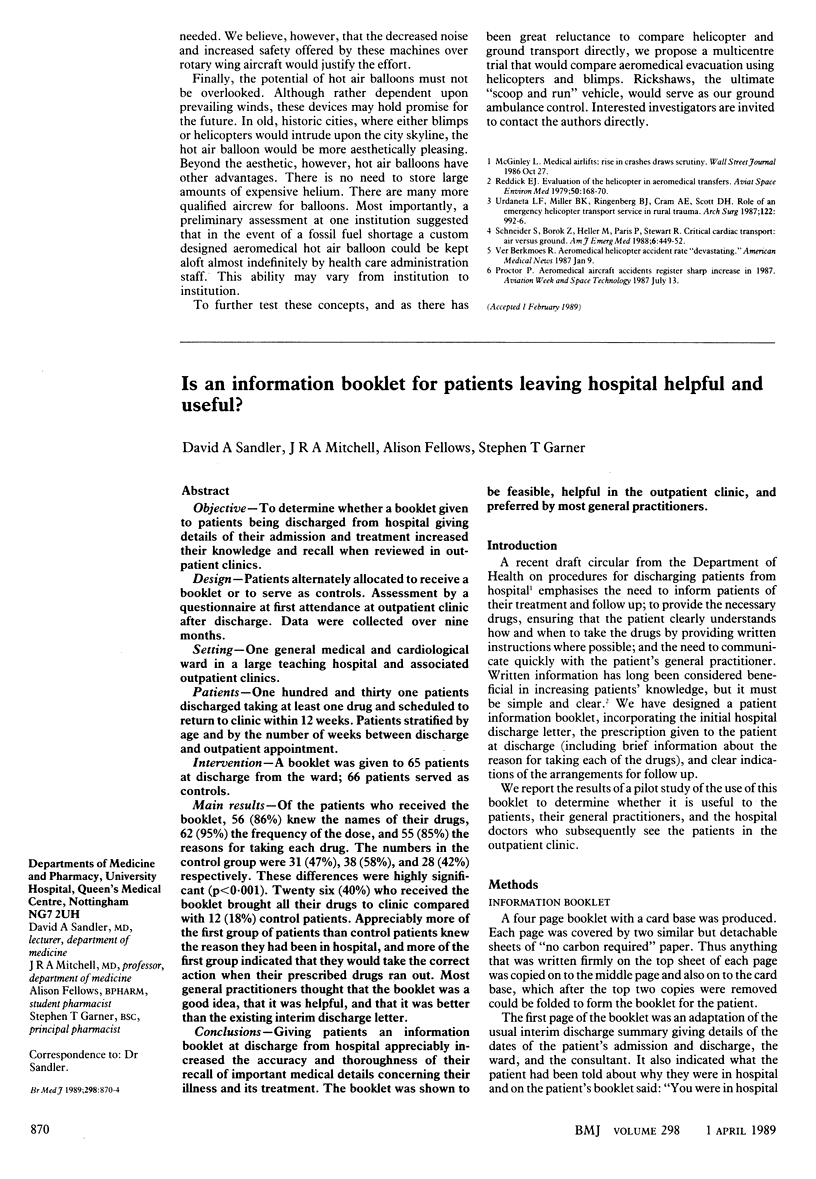
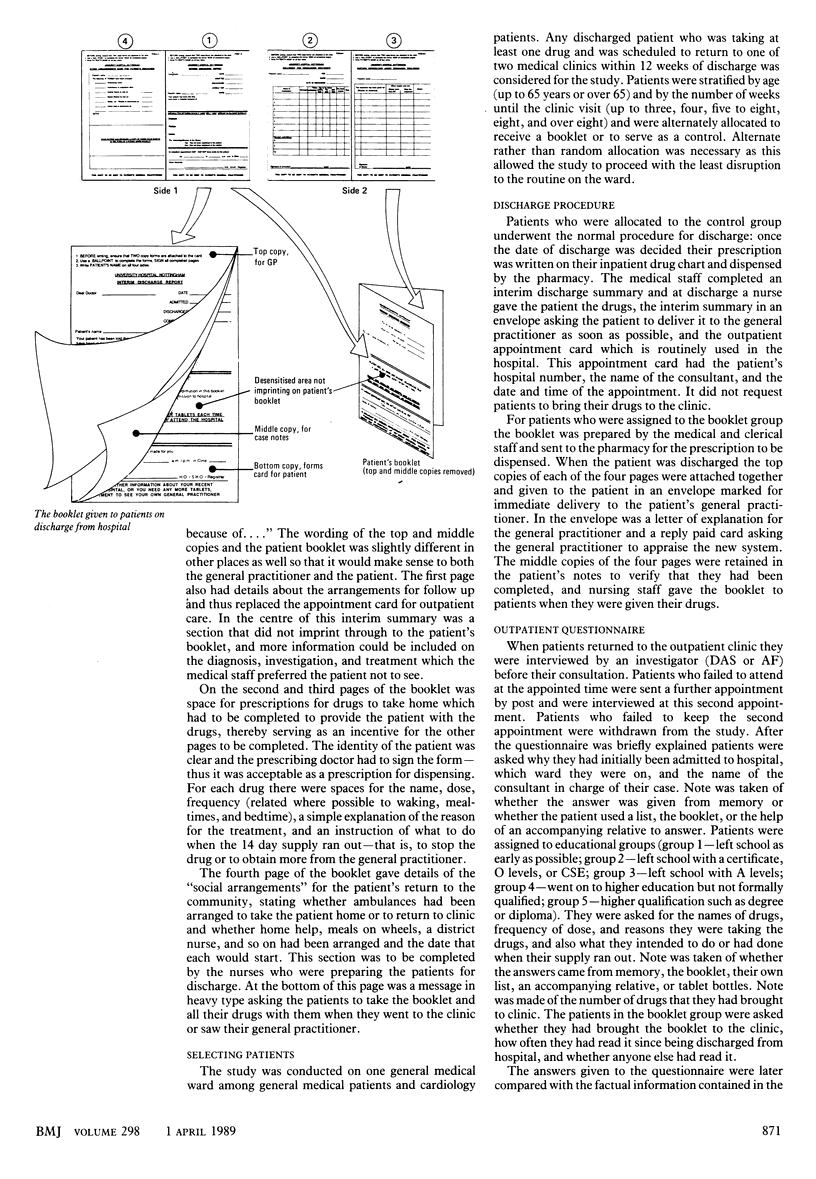
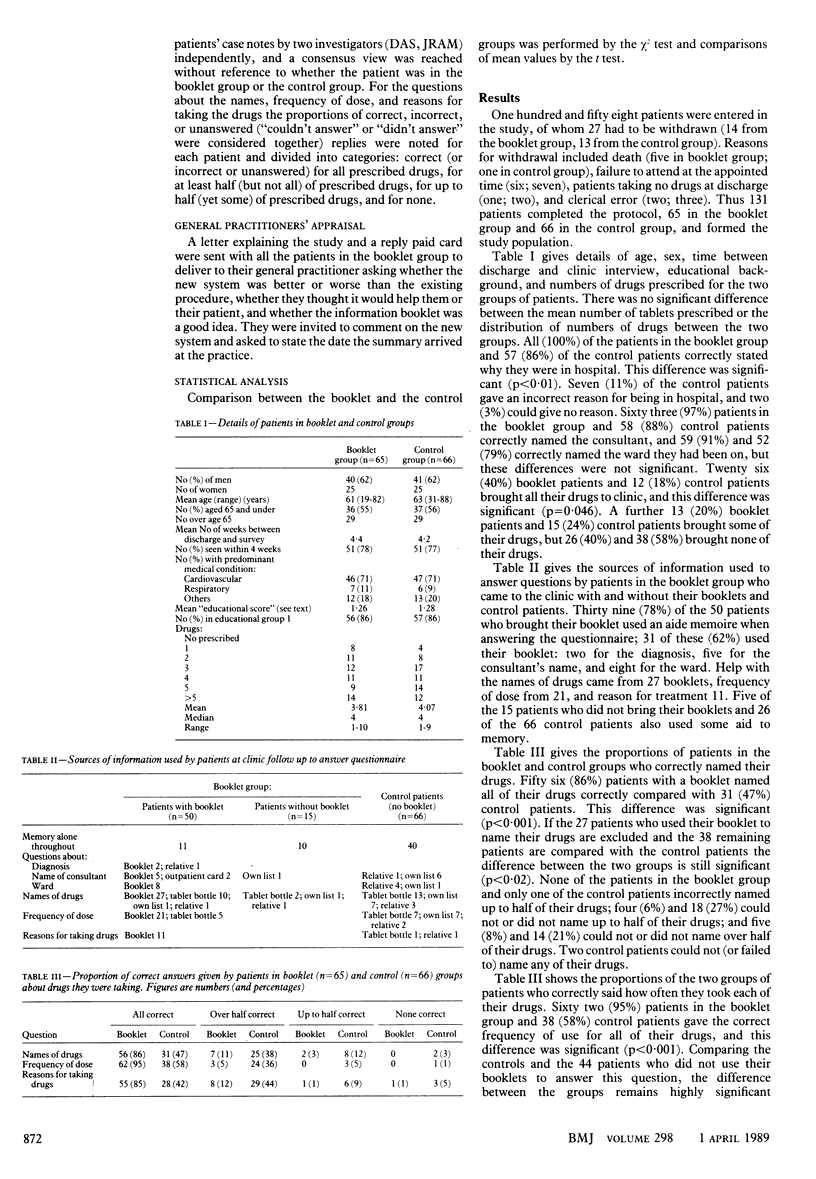
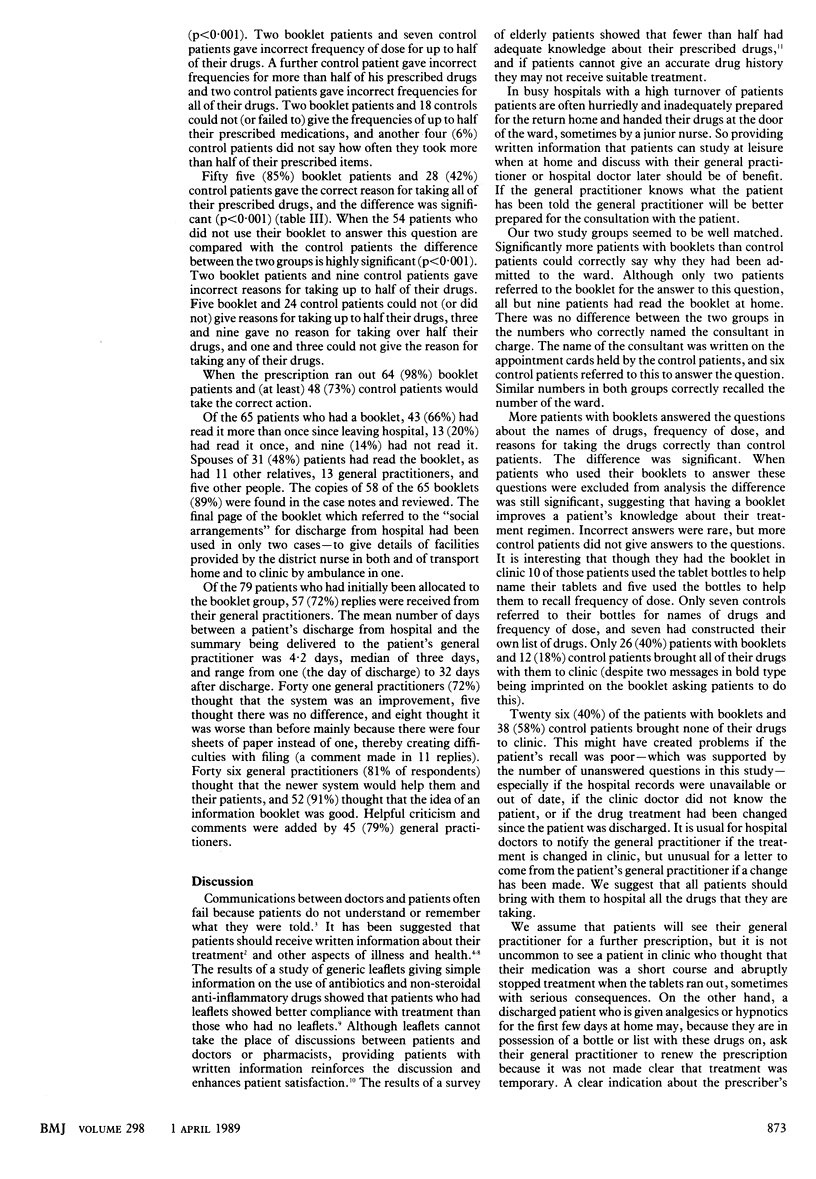
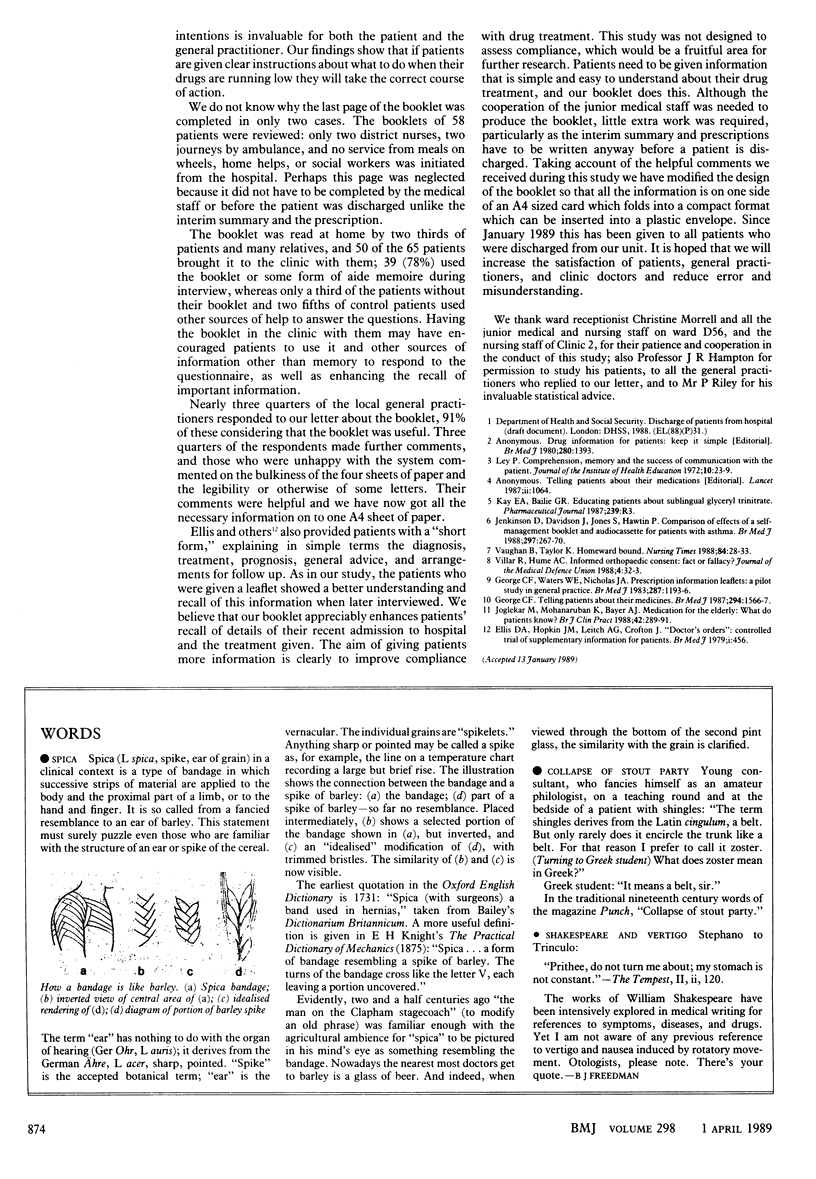
Selected References
These references are in PubMed. This may not be the complete list of references from this article.
- Ellis D. A., Hopkin J. M., Leitch A. G., Crofton J. "Doctors' orders": controlled trial of supplementary, written information for patients. Br Med J. 1979 Feb 17;1(6161):456–456. doi: 10.1136/bmj.1.6161.456. [DOI] [PMC free article] [PubMed] [Google Scholar]
- George C. F. Telling patients about their medicines. Br Med J (Clin Res Ed) 1987 Jun 20;294(6587):1566–1567. doi: 10.1136/bmj.294.6587.1566-a. [DOI] [PMC free article] [PubMed] [Google Scholar]
- Jenkinson D., Davison J., Jones S., Hawtin P. Comparison of effects of a self management booklet and audiocassette for patients with asthma. BMJ. 1988 Jul 23;297(6643):267–270. doi: 10.1136/bmj.297.6643.267. [DOI] [PMC free article] [PubMed] [Google Scholar]
- Joglekar M., Mohanaruban K., Bayer A. J. Medication for the elderly: what do patients know? Br J Clin Pract. 1988 Jul;42(7):289–291. [PubMed] [Google Scholar]
- Vaughan B., Taylor K. Discharge procedures. Homeward bound. Nurs Times. 1988 Apr 13;84(15):28–31. [PubMed] [Google Scholar]


